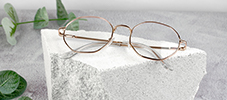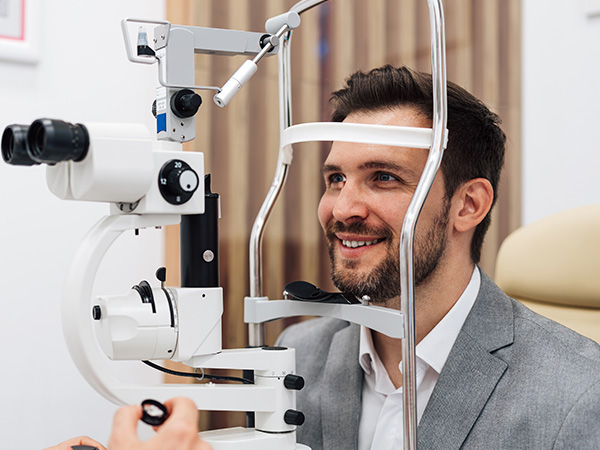
If you’ve been sneezing more than usual, experiencing itchy eyes, or dealing with constant irritation, you're not alone. Allergy season is in full swing and this year, it’s hitting harder than ever. April is marking the highest pollen count in Houston’s recorded history. For many, the season brings more than just sniffles. It can seriously affect your eyes and overall comfort.
How Allergies Affect Your Eyes
When you're exposed to pollen, your immune system identifies it as a threat. This immune response releases histamines, which trigger inflammation in the eyes and surrounding tissues. The result is a condition known as allergic conjunctivitis, or eye allergies.
You might experience:
- Red, bloodshot eyes due to dilated blood vessels
- Persistent itching that can be hard to ignore
- Watery discharge or excessive tearing
- Swelling of the eyelids
- Burning or gritty sensation in the eyes
- Increased sensitivity to light
In more severe cases, allergic reactions can even exacerbate chronic dry eye or make it harder to wear contact lenses comfortably. For those who already suffer from dry eyes or other eye conditions, allergy season can dramatically increase discomfort and affect vision quality.
What You Can Do to Protect Your Eyes
Although avoiding pollen entirely is nearly impossible, especially during a historic pollen surge. However, there are several ways to minimize its impact on your eyes. One of the most effective strategies is to limit your exposure. Try to stay indoors during peak pollen times, which are typically in the early morning and on windy afternoons when pollen is most airborne. Keeping your windows and doors closed can help reduce indoor pollen levels, and using high-efficiency air filters in your home can further improve air quality. Be sure to change these filters regularly to maintain their effectiveness.
Maintaining good hygiene is also key in preventing allergens from irritating your eyes. Wash your hands frequently, particularly after spending time outdoors, to avoid transferring pollen to your face. It’s also important to avoid rubbing or touching your eyes, as this can worsen irritation and spread allergens directly to the eye’s surface.
In addition to minimizing exposure and practicing good hygiene, consider using supportive eye care products to soothe symptoms. Over-the-counter artificial tears can help flush allergens from the eyes and provide moisture. Applying a cold compress can reduce inflammation and relieve discomfort, while antihistamine or anti-inflammatory eye drops can offer targeted relief from allergy-related irritation. Together, these steps can help you manage your eye allergies and maintain greater comfort throughout the season.
When to See Your Eye Doctor
If your eye discomfort lasts more than a few days, interferes with your daily activities, or worsens despite using OTC products, it’s time to seek professional help. Eye allergies can often mimic or overlap with other eye conditions, including infections or dry eye syndrome, and a proper diagnosis is key to effective treatment.
At Apollo Vision Haus, we take a personalized approach to eye care. Whether you need prescription eye drops, guidance on managing allergies with contact lenses, eyelid cleansing products, or in-office treatments for more advanced care, our optometrists will provide the relief you’re looking for.
Even if your symptoms seem mild, unchecked eye allergies can lead to long-term inflammation and affect your overall eye health. Don't wait until your eyes are red and irritated to take action.
Protect Your Eyes All Season Long
A record-breaking pollen season can wreak havoc on your eyes, but you don’t have to suffer through it. Understanding how allergies affect your eyes and taking the right precautions can make a big difference. And when at-home remedies aren’t enough, expert care is just around the corner.
As a proud VSP provider, Apollo Vision Haus makes it easy to get the care you need using your vision benefits. Whether it’s a comprehensive eye exam or relief from allergy-related irritation, we’re here to help you see and feel better.
If you’re experiencing allergies, contact Apollo Vision Haus to schedule a consultation and get personalized solutions to protect your eyes all season long. Visit our office in Houston, Texas, or call (832) 800-7259 to book an appointment today.
Schedule An Appointment








































